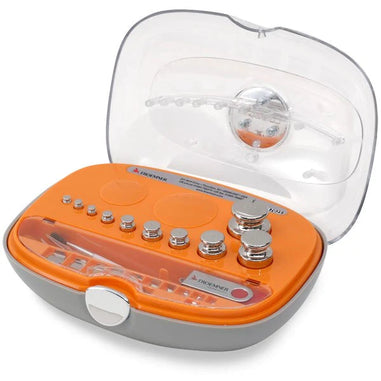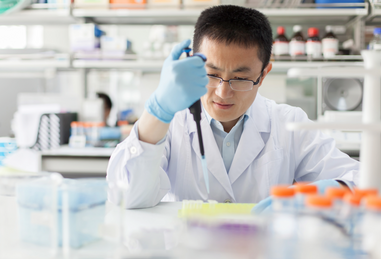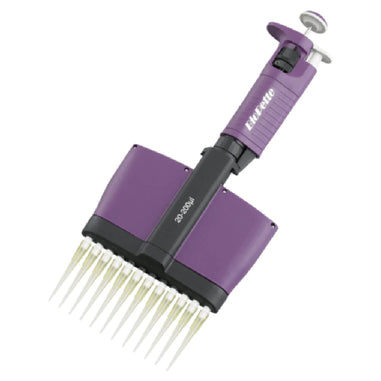- No products in the cart.
Calibration is an essential process for any laboratory instrument, and pipettes and liquid handlers are no exception. These tools are frequently used in analytical and research laboratories for measuring and dispensing precise volumes of liquid, and as such, their accuracy and precision are critical to ensure reliable and reproducible results. In this blog, we will discuss the five reasons why calibration is essential for pipettes and liquid handlers.
1. Ensuring accuracy and precision in results
One of the primary reasons for calibrating pipettes and liquid handlers is to ensure that they provide accurate and precise results. Accuracy refers to the closeness of a measured value to the true value, while precision refers to the reproducibility of a measurement. Both accuracy and precision are critical in laboratory work, where even the slightest errors can have significant consequences. Failure to calibrate pipettes and liquid handlers can result in inaccurate and imprecise measurements, which can lead to incorrect data, wasted time, and resources.
Calibration involves comparing the readings of a pipette or liquid handler to a known standard, such as a calibration weight or a gravimetric method. Any deviations from the standard can be corrected through adjustments, ensuring that the instrument provides accurate and precise results. By calibrating pipettes and liquid handlers regularly, laboratories can ensure that their results are reliable and consistent.
2. Preventing equipment failure
Pipettes and liquid handlers are precision instruments that are susceptible to wear and tear over time. As they are used repeatedly, they can become damaged or lose their accuracy, which can result in equipment failure. Calibration helps to detect any issues early on and prevent equipment failure before it occurs.
During the calibration process, any issues with the instrument's accuracy or precision can be identified and corrected. This can include adjustments to the pipette or liquid handler's internal mechanisms, such as the plunger or the dispensing tip. By detecting and correcting these issues early on, laboratories can avoid costly repairs or replacements down the line.
3. Meeting regulatory requirements
In many industries, including pharmaceuticals, biotechnology, and food and beverage, regulatory bodies require that laboratory equipment is calibrated regularly to ensure compliance with industry standards. These standards may include ISO 17025, Good Manufacturing Practice (GMP), or Good Laboratory Practice (GLP) guidelines. Failure to comply with these regulations can result in fines, legal action, or the suspension of operations.
Calibration is an essential part of meeting regulatory requirements, as it ensures that laboratory equipment is functioning within acceptable parameters. By calibrating pipettes and liquid handlers, laboratories can demonstrate that they are complying with industry standards and avoid any potential legal or financial consequences.
4. Increasing the lifespan of the instrument
Calibrating pipettes and liquid handlers regularly can also increase the lifespan of the instrument. These tools are precision instruments that require careful handling and maintenance to ensure optimal performance. Failure to calibrate these instruments can result in damage to internal components, reducing their lifespan and increasing the likelihood of equipment failure.
By calibrating pipettes and liquid handlers, laboratories can identify any issues early on and address them before they cause significant damage. This can help extend the lifespan of the instrument and reduce the need for costly repairs or replacements.
5. Improving laboratory efficiency
Finally, calibration can improve laboratory efficiency by reducing the time and resources required for repetitive tasks. Pipettes and liquid handlers are often used for repetitive tasks, such as sample preparation or dilution, that require precise measurements. By ensuring the accuracy and precision of these instruments through calibration, laboratories can reduce the need for repeated measurements or corrections, saving time and resources.
In conclusion, calibration is essential for pipettes and liquid handlers in laboratory settings. It ensures accuracy and precision in results, prevents equipment failure, meets regulatory requirements, increases the lifespan of the instrument, and improves laboratory efficiency
Where To Find Pipette Calibration Specialists in California?
If your manufacturing relies on accurate pipettes, then you know how crucial it is to have properly calibrated pipettes. That's where Lab Pro's pipette calibration services come in. Our expert technicians the "Pro"-s, use state-of-the-art equipment to ensure that your pipettes are calibrated to the highest industry standards, so you can trust the accuracy of your measurements. With our fast and reliable service, you can minimize downtime and keep your operations running smoothly. Trust Lab Pro Inc for all your pipette calibration needs.
About Lab Pro
For over 40 years, Lab Pro Inc. has been committed to delivering the highest quality lab equipment, pipette calibration services, chemicals, lab balances and scales, lab supplies, and cleanroom PPE apparel to medical device companies and laboratories worldwide. To learn more contact us online or at 888-452-2776.












































